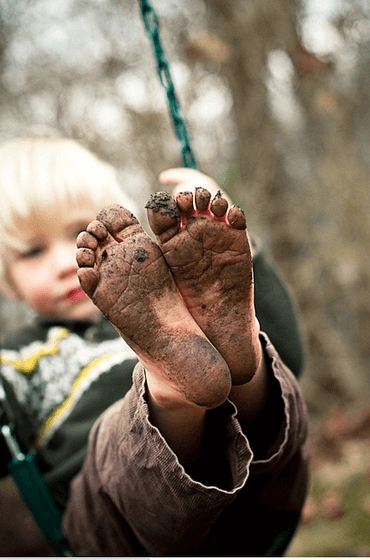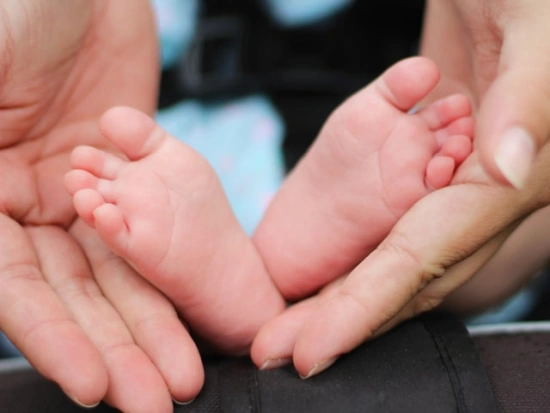1
A Avram beše star i vremenit, i Gospod beše blagoslovio Avrama u svemu;
2
I reče Avram sluzi svom najstarijem u kući svojoj, koji beše nad svim dobrom njegovim: Metni ruku svoju pod stegno moje,
3
Da te zakunem Gospodom Bogom nebeskim i Bogom zemaljskim da nećeš dovesti žene sinu mom između kćeri ovih Hananeja, među kojima živim;
4
Nego da ćeš otići u zemlju moju i u rod moj i dovesti ženu sinu mom Isaku.
5
A sluga mu reče: i ako devojka ne htedbude poći sa mnom u ovu zemlju; hoću li odvesti sina tvog u zemlju iz koje si se iselio?
6
A Avram mu reče: Pazi da ne odvedeš sina mog onamo.
7
Gospod Bog nebeski, koji me je uzeo iz doma oca mog i iz zemlje roda mog, i koji mi je rekao i zakleo mi se govoreći: Semenu ću tvom dati zemlju ovu, On će poslati anđela svog pred tobom da dovedeš ženu sinu mom odande.
8
Ako li devojka ne htedbude poći s tobom, onda da ti je prosta zakletva moja; samo sina mog nemoj odvesti onamo.
9
I metnu sluga ruku svoju pod stegno Avramu gospodaru svom, i zakle mu se za ovo.
10
Tada sluga uze deset kamila između kamila gospodara svog da ide, jer sve blago gospodara njegovog beše pod njegovom rukom; i otišavši dođe u Mesopotamiju do grada Nahorovog.
11
I pusti kamile da poležu iza grada kod studenca pred veče kad izlaze građanke da zahvataju vode;
12
I reče: Gospode Bože gospodara mog Avrama, daj mi sreću danas i učini milost gospodaru mom Avramu.
13
Evo, ja ću stajati kod ovog studenca, a građanke će doći da zahvataju vode.
14
Kojoj devojci kažem: Nagni krčag svoj da se napijem, a ona reče: Na pij, i kamile ću ti napojiti; daj to da bude ona koju si namenio sluzi svom Isaku; i po tome da poznam da si učinio milost gospodaru mom.
15
I on još ne izgovori, a to Reveka, kći Vatuila sina Melhe žene Nahora brata Avramovog, dođe s krčagom na ramenu.
16
I beše vrlo lepa, još devojka, još je čovek ne beše poznao. Ona siđe na izvor, i natoči krčag, i pođe;
17
A sluga iskoči pred nju, i reče; daj mi da se napijem malo vode iz krčaga tvog.
18
A ona reče: Na pij, gospodaru. I brže spusti krčag na ruku svoju, i napoji ga.
19
I kad ga napoji, reče: i kamilama ću tvojim naliti neka se napiju.
20
I brže izruči krčag svoj u pojilo, pa opet otrča na studenac da nalije, i nali svim kamilama njegovim.
21
A čovek joj se divljaše, i ćutaše, neće li poznati je li Gospod dao sreću putu njegovom ili nije.
22
A kad se kamile napiše, izvadi čovek zlatnu grivnu od po sikala i metnu joj oko čela, i dve narukvice metnu joj na ruke od deset sikala zlata.
23
I reče: Čija si kći? Kaži mi. Ima li u kući oca tvog mesta za nas da prenoćimo?
24
A ona mu reče: Ja sam kći Vatuila sina Melšinog, koga rodi Nahoru.
25
Još reče: Ima u nas mnogo slame i piće i mesta za noćište.
26
Tada čovek savivši se pokloni se Gospodu,
27
I reče: Blagosloven da je Gospod Bog gospodara mog Avrama, što ne ostavi milost svoju i veru svoju prema gospodaru mom, i putem dovede me Gospod u dom rodbine gospodara mog.
28
A devojka otrča i sve ovo kaza u domu matere svoje.
29
A Reveka imaše brata, kome ime beše Lavan; i istrča Lavan k čoveku na studenac,
30
Kako vide grivnu i narukvice na rukama sestre svoje i ču gde Reveka sestra mu reče: Tako mi kaza čovek; dođe k čoveku; a on stajaše kod kamila na studencu.
31
I reče: Hodi, koji si blagosloven od Gospoda; što bi stajao napolju? Spremio sam kuću, ima mesta i za kamile.
32
I dovede čoveka u kuću, i rastovari kamile; i dodaše slame i piće kamilama, i donesoše vode za noge njemu i ljudima što behu s njim;
33
I postaviše mu da jede; ali on reče: Neću jesti dokle ne kažem stvar svoju. A Lavan mu reče: Govori.
34
Tada reče: Ja sam sluga Avramov.
35
A Gospod je blagoslovio gospodara mog veoma, te je postao velik, i dao mu je ovaca i goveda, i srebra i zlata, i sluga i sluškinja, i kamila i magaraca.
36
I još Sara žena gospodara mog rodi sina gospodaru mom u starosti njegovoj, i on mu dade sve što ima.
37
A mene zakle gospodar moj govoreći: Nemoj dovesti sinu mom žene između kćeri ovih Hananeja, među kojima živim;
38
Nego idi u dom oca mog i u rod moj, da dovedeš ženu sinu mom.
39
A ja rekoh gospodaru svom:
40
Može biti da devojka neće hteti poći sa mnom.
41
A on mi reče: Gospod, po čijoj volji svagda živeh, poslaće anđela svog s tobom, i daće sreću tvom putu da dovedeš ženu sinu mom od roda mog, iz doma oca mog.
42
Onda će ti biti prosta zakletva moja, kad otideš u rod moj; ako ti je i ne dadu, opet će ti biti prosta zakletva moja.
43
I kad dođoh danas na studenac, rekoh: Gospode Bože gospodara mog Avrama, ako si dao sreću putu mom, kojim idem,
44
Evo, ja ću stajati kod studenca: koja devojka dođe da zahvati vode, i ja joj kažem: Daj mi da se napijem malo vode iz krčaga tvog,
45
A ona mi odgovori: i ti pij i kamilama ću tvojim naliti; to neka bude žena koju je namenio Gospod sinu gospodara mog.
46
Ja još ne izgovorih u srcu svom, a dođe Reveka s krčagom na ramenu, i sišavši na izvor zahvati; i ja joj rekoh: Daj mi da se napijem.
47
A ona brže spustivši sa sebe krčag reče: Na pij, i kamile ću ti napojiti. I kad se napih, napoji i kamile moje.
48
I zapitah je govoreći: Čija si kći? A ona odgovori: Ja sam kći Vatuila sina Nahorovog, kog mu rodi Melha. Tada joj metnuh grivnu oko čela i narukvice na ruke;
49
I padoh i poklonih se Gospodu, i zahvalih Gospodu Bogu gospodara mog Avrama, što me dovede pravim putem da nađem kćer brata gospodara svog za sina njegovog.
50
Ako ćete dakle učiniti ljubav i veru gospodaru mom, kažite mi; ako li nećete, kažite mi, da idem na desno ili na levo.
51
A Lavan i Vatuilo odgovarajući rekoše: Od Gospoda je ovo došlo; mi ti ne možemo kazati ni zlo ni dobro. Eto, Reveka je u tvojoj vlasti, uzmi je pa idi, i neka bude žena sinu tvog gospodara, kao što kaza Gospod.
52
A kad ču sluga Avramov reči njihove, pokloni se Gospodu do zemlje;
53
I izvadi zaklade srebrne i zlatne i haljine, i dade Reveci; takođe i bratu njenom i materi njenoj dade darove.
54
Potom jedoše i piše on i ljudi koji behu s njim, i prenoćiše. A kad ujutru ustaše, reče sluga: Pustite me gospodaru mom.
55
A brat i mati njena rekoše: Neka ostane devojka kod nas koji dan, barem deset dana, pa onda neka ide.
56
A on im reče: Nemojte me zadržavati, kad je Gospod dao sreću mom putu; pustite me da idem gospodaru svom.
57
Tada rekoše: Da zovemo devojku, i upitamo šta ona veli.
58
I dozvaše Reveku i rekoše joj: Hoćeš ići s ovim čovekom? A ona odgovori: Hoću.
59
I pustiše Reveku sestru svoju i dojkinju njenu sa slugom Avramovim i ljudima njegovim.
60
I blagosloviše Reveku i rekoše joj: Sestro naša, da se namnožiš na hiljade hiljada, i seme tvoje da nasledi vrata svojih neprijatelja!
61
I podiže se Reveka s devojkama svojim, i posedaše na kamile, i pođoše s čovekom; i sluga uzevši Reveku otide.
62
A Isak iđaše vraćajući se od studenca Živoga koji me vide jer življaše u južnom kraju;
63
A beše izašao Isak u polje pred veče da se pomoli Bogu; i podigavši oči svoje ugleda kamile gde idu.
64
I Reveka podigavši oči svoje ugleda Isaka, te skoči s kamile,
65
I reče sluzi: Ko je onaj čovek što ide preko polja pred nas? A sluga reče: Ono je gospodar moj. I ona uze pokrivalo i pokri lice.
66
I pripovedi sluga Isaku sve što je svršio.
67
I odvede je Isak u šator Sare matere svoje; i uze Reveku, i ona mu posta žena, i omile mu. I Isak se uteši za materom svojom.








